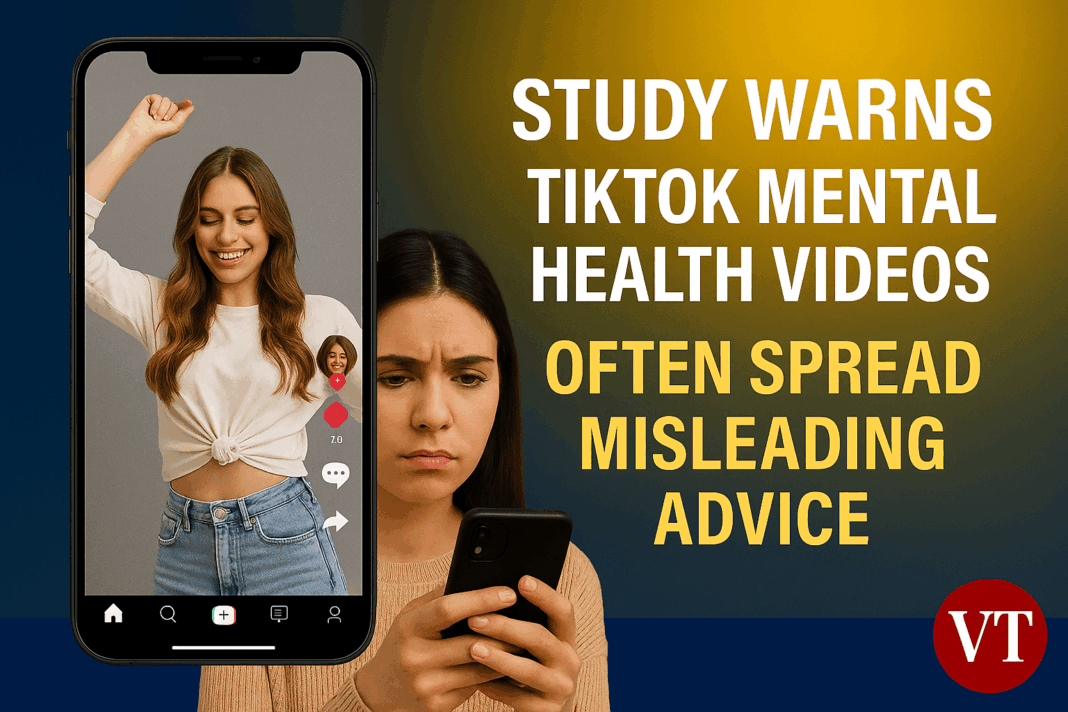Story Highlights
- 52 out of 100 viral TikToks under #mentalhealthtips spread misinformation.
- Common myths include quick-fix remedies and false diagnoses.
- Experts warn of long-term health risks and erosion of trust in professionals.
- TikTok’s algorithm boosts emotional, unverified content.
- Digital literacy and platform accountability are key solutions.
Lead: Alarming Study Sparks Mental Health Misinformation Concerns
A new investigation by The Guardian has revealed that over 50% of TikTok’s most-viewed mental health videos contain false or misleading claims. The analysis, which focused on the top 100 viral posts under the hashtag #mentalhealthtips, found 52 clips to be factually inaccurate or medically unverified.
Background: TikTok as a Mental Health Hub
With over 1 billion users worldwide, TikTok has emerged as a leading platform for mental health conversations. Many viewers, especially teens and young adults, turn to the app for emotional support and coping tips. However, this surge in content has opened the door to misinformation, often spread by influencers with no clinical background.
Details: The Types and Risks of False Advice
The study identified recurring themes in misleading videos, such as “curing anxiety by eating oranges in the shower” or “self-diagnosing ADHD after watching one video.” Experts warn that such advice may delay professional treatment, worsen symptoms, or promote dangerous self-medication. Moreover, some videos misuse psychological terms, pathologizing normal human emotions like sadness or restlessness.
Platform Dynamics: How TikTok Promotes Misinformation
- Algorithmic Amplification: Emotionally charged posts gain higher engagement and thus wider reach, regardless of accuracy.
- Echo Chambers: Users mostly follow creators that match their beliefs, reinforcing biases.
- Influencer Authority: Creators with large followings but no credentials often disseminate mental health myths.
- Low Oversight: Social platforms lack editorial review processes that traditional journalism upholds.
Reaction: Experts and TikTok Respond
In response to the study, TikTok stated that it collaborates with mental health organizations to remove harmful content and elevate expert voices. However, critics argue that enforcement remains inconsistent. Dr. Caroline Harper, a clinical psychologist, told The Guardian that “users are increasingly struggling to separate genuine support from harmful myths.”
Solutions: Building a Safer Mental Health Ecosystem Online
To mitigate the spread of misinformation, researchers propose a three-pronged approach:
- Users: Think critically, check medical credentials, and avoid self-diagnosis.
- Platforms: Strengthen moderation, label unverified content, and de-prioritize misleading videos.
- Governments and Institutions: Expand digital literacy programs and enforce platform transparency laws.
Outlook: Navigating Mental Health in the Age of Social Media
Social media holds enormous potential for mental health advocacy, but only if it’s built on evidence-based, responsible communication. As millions turn to TikTok for advice, the collective responsibility of creators, platforms, and users becomes vital to avoid worsening a global mental health crisis.
With inputs from The Guardian and mental health professionals.
A global media for the latest news, entertainment, music fashion, and more.















